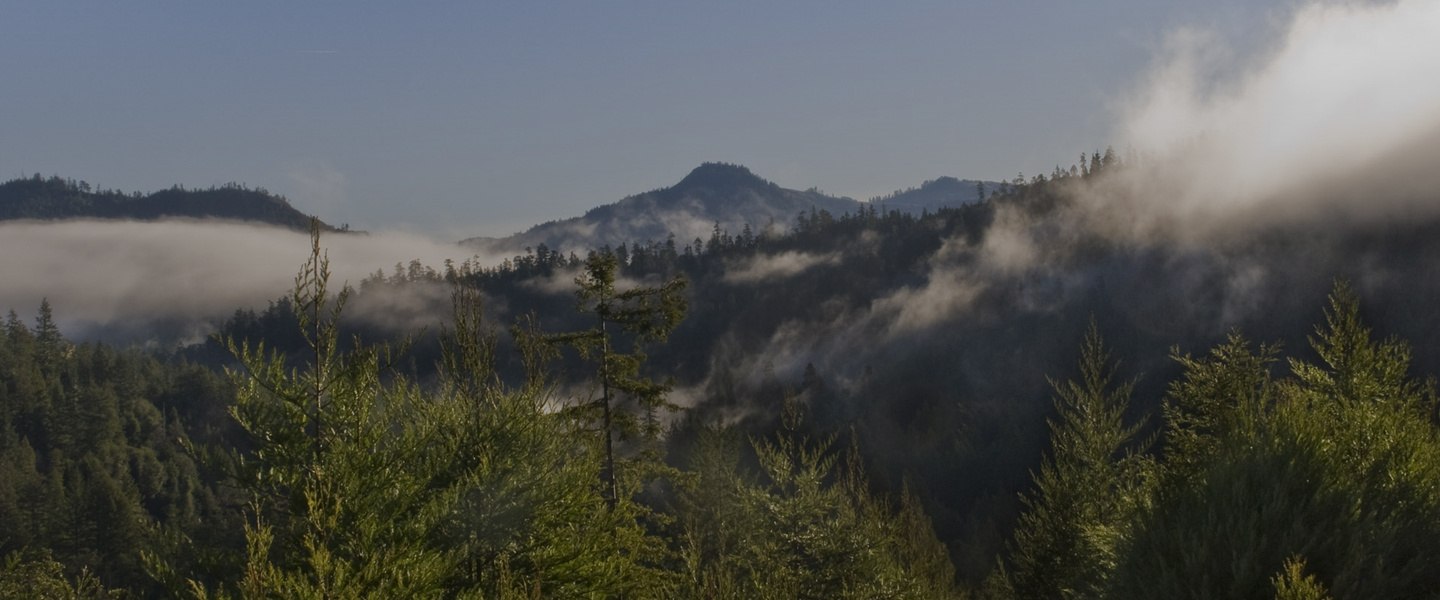
EPIC and Humboldt Redwood Company letter to the editor regarding CCVH's proposed cannabis regulations
We are somewhat strange bedfellows-the Environmental Protection Information Center (EPIC) is a non-profit based in Arcata devoted to the defense of the North Coast's forests; the Humboldt Redwood Company is a forestry company devoted to managing its large blocks of forestlands to provide for long-term ecological, social, and economic vitality. Although we don't always see eye-to-eye, we do agree on this: the marijuana "regulation" being forwarded by California Cannabis Voice Humboldt (CCVH) is bad for our forests. And what's bad for forests is bad for Humboldt County.
Forests are important to California. Not only do they provide us humans with jobs, wood products, and recreation, they also provide important habitat for California's rare and native species, like the Humboldt marten and the northern spotted owl, fight climate change by sequestering carbon, and help to supply clean, cool water. But our forests are at risk. Increased forest fragmentation - the breaking of large intact tracts of forests into smaller clumps - is driven by the desire to make way for new residences or commercial ventures by clearing forest land. And fragmentation poses a serious threat to the values our forests provide.
To promote the conservation of California's forested landscape, in 1976 the State ordered counties to identify forestlands where timber management is the "highest and best use of the land" and categorize them as Timber Production Zones or TPZ. By law, use of TPZ land is restricted to timber harvesting and other "compatible uses" - those activities, as defined county-by-county, that do not "detract from the use of the property for, or inhibit, growing and harvesting timber." In exchange for limiting the uses of TPZ land, and knowing that sustainable timber management is not a get rich quick scheme, the State offers TPZ landowners significant breaks on property taxes. As a whole, the TPZ system has worked: forest conversion slowed dramatically and responsible landowners could expect a profit from forest management.
While purportedly a marijuana regulation, the CCVH initiative would do more than regulate pot - it would further open our forests to development. Under the initiative, commercial marijuana cultivation would become a "compatible use" with forestlands in Humboldt County. This little change in the law could have drastic consequences. By opening TPZ land to commercial marijuana cultivation, those growing marijuana - California's most lucrative crop - on TPZ land would receive a tax break. In turn, because of this preferential tax treatment for those growing marijuana on TPZ as opposed to other types of land, the price of timberland would jump as more growers flock deeper into the TPZ land in the hills. Therein lies the problem.
Marijuana production and forests don't mix. It's simple: trees provide shade, marijuana plants need light. As marijuana grows push further into TPZ land, our region's forests will become (even more) pockmarked with clearcuts and white greenhouses.
Responsible forestry will suffer. Forestry is a long-game, deriving profit off slow-growing trees and long rotation cycles. Inflating the price of TPZ land by forcing forestry to compete with marijuana, a high-value crop with multiple growing seasons possible per year, is a losing game. Further, forest health is potentially threatened as folks who have no interest or knowledge in forest management become negligent neighbors.
Wildlife will suffer. Large blocks of forest will become fragmented as roads and permanent human presence associated with commercial marijuana production plod further into once-wild places. In these areas, the harmful effects of rodenticide and other toxicants, diesel spills, water diversions, sedimentation, and nutrient runoff are more acute. Studies have shown that marijuana production deep in federal forests harm the rare Pacific fisher. Diversion of headwaters likewise threatens the sensitive southern torrent salamander and the tailed frog. Sedimentation, nutrient runoff and diversions threaten endangered salmon. In short, the proliferation of pot in our forests is bad for Humboldt County.
When environmentalists and loggers agree, it'd be wise to listen: the CCVH initiative is bad for our forests and bad for our county. While we believe that our marijuana industry is in need of regulation, letting the industry dictate the rules is not the smart thing to do.
Natalynne DeLapp is the Executive Director of the Environmental Protection Information Center. Mike Jani is the president and Chief Forester of Humboldt Redwood Company.